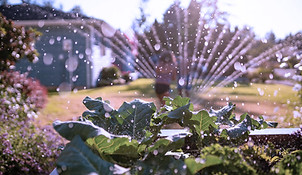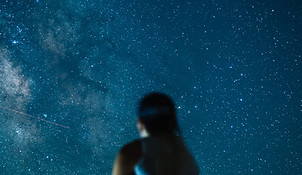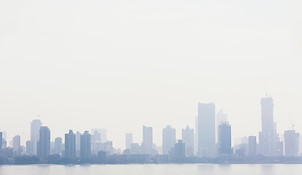A LITERARY JOURNAL PUBLISHING STANDOUT TEEN WRITERS AGES 13-19
.png)
“Writing creates a sanctuary to explore a situation, reflect on a past event, and make sense of who we are and where we fit in the world. In this issue of Write the World Review, young writers from around the world embrace writing as a tool to think through and make sense of the changing world.”
- David Weinstein, Founder, Write the World, Inc. Read David's full letter here.
ANNE BLACKWOOD (US)
There is nothing profound about any of this. There is everything beautiful about all of this.
TERESA NG (Aotearoa/New Zealand)
Sugary tears leak out of every crack and
Pen mark in the bathroom Wall
JOSIE JOHNSON (US)
Propped up on my elbows, on the stiff gym floor.
Planks: a climax in the battle to stay healthy.
AVA REITMAIER STONE (Canada)
Everything we know about ourselves is relayed by sources outside of us.
LYAT MELESE (US)
My mother fries chicken for dinner
says she hasn't seen real chicken in America
KEREN-HAPPUCH GARBA (Nigeria)
The stories they tell me spill out a feeling that the spider web defines perfectly.
ANTARA KULKARNI (India)
To this day, most of what we actually know about sex is from Netflix shows, or The Notebook.
DAVIN FARIS (US)
From the sky I saw endless gray rivers,
older than the cliché of arteries
BIBEK LIMBU (India)
Hands that once felt too small to lift burdens
are now clenched into fists
FATIMA MOHIUDDIN (Pakistan)
The last move (the best move, the worst move, The Move) was almost four years ago.
.png)
The celebrated American writer, Joan Didion, once said, “I don’t know what I think until I write it down.” She’s not the only one.
For Gen Z, the pace of life is fast and faster. Lots of inputs. Not enough time to think and synthesize. Writing creates a sanctuary to explore a situation, reflect on a past event, and make sense of who we are and where we fit in the world. In this issue of Write the World Review, young writers from around the world embrace writing as a tool to think through and make sense of the changing world. To slow down the churn of information and distill the stuff that matters: everything from social media, to migration, to sex education in schools, to self identity.
For example, Ava Reitmaier Stone (Canada) examines her relationship with social media through the philosophical lens of existentialism. She concludes that the imitation of herself she saw on her Instagram profile was not worth the effort.
“Social media has evolved past a place to post a knitting tutorial or a thoughtless skit. It is now a space to exist inside of, one that demands all of you: from displaying your morning avocado toast on Instagram to later tweeting about how breakfast disagreed with you. Not to be too cliché, but what is this doing to our souls?”
Lyat Melese’s (US) poem about her family’s migration from Ethiopia to the US, honors her Aunty’s sacrifices and surfaces the oft hidden, thankless work shouldered by many immigrants:
Aunty works at a chicken processing plant
now
no english, they say, plus free transportation…
two hour rides
with other elderly ladies
who fill time with murmurs
of broken english and native tongue
they will enter the place
machine loud yet silent
to skin chicken and pull innards
returning to
free transportation
with swollen feet
Is anything free?
Antara Kulkarni (India) argues for a more expansive and open approach to gender identity and sex education in her powerful op-ed:
"If pins aren’t used to neatly tuck strands of my unkempt hair back, I am not presentable. If I do not wear a black hairband to match with my black hair ties, I do not represent my school well. And finally—I must wear a skirt to show my femininity. The pretext of my school uniform is this: boys wear shorts while girls wear skirts. That is, until high school, when it changes to pants for the boys, while us girls are still trying to fit ourselves into our grade five skirts. Nobody has asked me if wearing a skirt to identify myself makes me feel comfortable."
And Keren-happuch Garba (Nigeria) reflects on how family stories shape our definition of selves in “In the Spider Web.”
The stories they tell me spill out a feeling that the spider web defines perfectly. Its intricate silk fiber connected to form a new path from another's end, loops that began somewhere but can't be found. The feeling is complex, just like the web but deemed beautiful.
These days, we need the processing power of “writing it down” to get to the bottom of things. To find the depth and meaning in myriad changes. Wherever you write, whether at your desk, under a tree, or on the bus to school, make time to find the words that collect and then connect the meaning of all you experience. If you’re a young writer, I encourage you to make sense of your own stories through our prompt: Origins and Inspirations. If you’re a teacher, our lesson plans that accompany this issue will help frame your students’ thinking and generate further classroom discussion.
We communicate our essence—to ourselves and others—by constructing considered written words. Think it through, write it down, and share it with others to read.
- David Weinstein, Founder, Write the World, Inc
.png)











